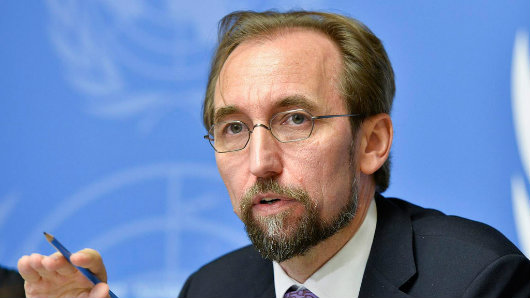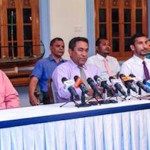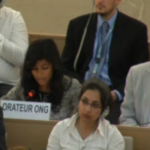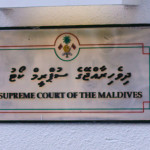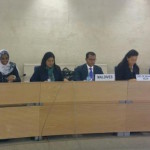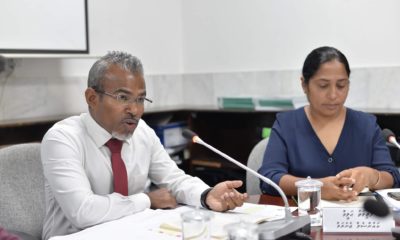The foreign ministry has slammed UN High Commissioner for Human Rights Zeid Ra’ad Al Hussain’s renewed calls today for the release of former President Mohamed Nasheed.
In his opening statement at the 30th session of the UN Human Rights Council, Zeid said the “rule of law continues to be manipulated for political ends” by the government.
“I was initially encouraged by the government’s decision in July to move former President Nasheed to house arrest for health reasons and to appeal his conviction after a flawed trial,” he said.
“But the decision to return him to prison last month, and pursuit of a further criminal investigation against his family, are serious setbacks. Given the deeply tainted nature of this case, I urge the government to release him, and to review several hundred pending criminal cases against opposition supporters in relation to protests in recent months.”
Nasheed was taken back to Maafushi jail on August 23 after two months under house arrest, during which the government and the opposition had engaged in talks for political reconciliation. Nasheed’s re-imprisonment prompted the UN human rights chief as well as the US and UK governments to renew calls for his release.
The opposition leader was found guilty of terrorism in March over the military’s detention of a judge during his tenure and sentenced to 13 years in prison.
The 19-day trial at the criminal court drew widespread international condemnation over its apparent lack of due process.
In a statement issued shortly after Zeid’s remarks, the foreign ministry said the government “rejects” the high commissioner’s characterisation of the situation and dismissed the allegations as “completely baseless,” and “wholly inappropriate.”
The government went on to blame Nasheed for his alleged lack of cooperation with the appeal process last week. The court had rejected the state’s appeal on Thursday on the grounds that it was not filed by Nasheed.
The Prosecutor General “sought to put the case before the appellate courts given the criticisms raised, and a direct request by Mr Nasheed,” the ministry said, but claimed Nasheed had then “failed to co-operate with the process.”
Nasheed’s lawyers had argued that the PG must acknowledge the criminal court proceedings were flawed in its appeal. The prosecutors disagreed.
“Mr Nasheed’s refusal to engage with the process was a deliberate attempt to sabotage the proceedings and thus it is Mr Nasheed who is seeking to manipulate the judicial process for political gain,” the statement alleged.
“To seek the release of an individual purely on the basis of his political standing and having [no] regard to the allegations against him is inappropriate, and clearly seeks to circumvent the rule of law.
“Further, the High Commissioner is reminded that the complaint filed by the former President with the UN Working Group on Arbitrary Detention has not yet published its opinion on the matter and is still subject to review and thus the demands made in this recent statement prior to the conclusion of that review are again, wholly inappropriate.”
Nasheed’s international lawyers Amal Clooney, Jared Genser, and Ben Emmerson filed a petition with the working group on April 30, seeking a judgment declaring his imprisonment unlawful.
Genser and Clooney told the press during a visit to the Maldives last week that a likely ruling in Nasheed’s favour by the specialised UN agency would be an “authoritative pronouncement” that could pave the way to impose targeted sanctions, overseas asset freezes, and travel bans on Maldivian government officials if the opposition leader is not released.
Nasheed was meanwhile taken back to jail amid a dispute over a document purportedly from the Maldives Correctional Services commuting his 13-year jail sentence to permanent house arrest. The police launched an investigation after the government dismissed the document as a “forgery” and searched Nasheed’s residence on August 27, confiscating CCTV recording equipment.
Nasheed’s family and lawyers accused the police of harassment and criminal trespassing after police officers searched the residence from 9:40pm to 4:00am, obtaining four warrants from the criminal court to search for the disputed document.

